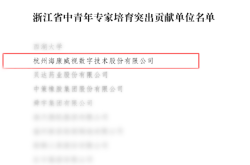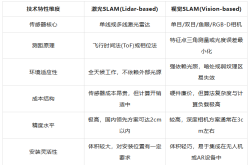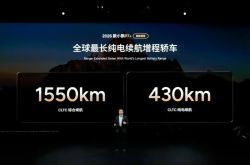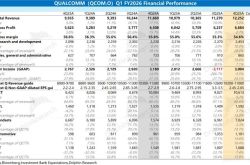"Jiyue's 'Collapse'! Li Yanhong's Automotive Ambitions Crumble!
![]() 12/16 2024
12/16 2024
![]() 608
608
The fiercely competitive landscape of the new energy vehicle industry has intensified.
From Weima Auto, HiPhi, to Nezha Auto, and now Jiyue Auto, the game has shifted. In this brutal environment, delivery volumes are no longer the sole measure of success; survival and preserving cash flow have become paramount for automakers.
It is evident that Jiyue's downfall is not the end, but merely the beginning of a series of shake-ups.
The new energy vehicle industry is no longer a playground for the fearless.
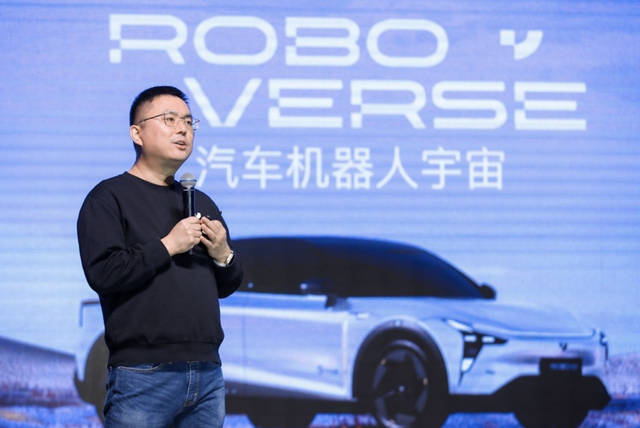
There's an intriguing business phenomenon in China: whenever an industry becomes profitable, companies flock in, engaging in ruthless competition that often disrupts the entire industry's ecosystem.
This not only warrants reflection but also serves as a cautionary tale for companies contemplating blind industry diversification.
In 2019, the African swine fever crisis sent pork prices soaring, making pig farming an attractive venture. Driven by huge profits, numerous companies ventured into pig farming.
Data reveals that as early as 2009, Ding Lei, Chairman of NetEase, announced plans to enter pig farming, creating a buzz at the time. However, by 2013, after four years of pig farming, NetEase hadn't yet marketed a single pig.
It wasn't until 2016 that Ding Lei's pig farm started showing returns, highlighting the difficulties along the way. Despite this, the high pork prices didn't deter new entrants.
Following Ding Lei, Liu Qiangdong and Jack Ma also announced their entry into pig farming.
In February 2018, at Jack Ma's behest, Alibaba Cloud partnered with Sichuan Tequ Group and Dekang Group to fully realize AI pig farming through targeted training and development of Alibaba Cloud's ET Brain.
Liu Qiangdong also revealed that JD.com's pig farming would employ the world's first 'pig face recognition' technology, assigning a unique code to each pig using their faces, recording all information and daily conditions. Intelligent cameras, feeders, and inspectors would be used, with automated adjustments for air conditioning, temperature, humidity, and air circulation.
Even Vanke, usually a calm player, couldn't resist the allure of pig farming. According to data, in March 2020, Vanke officially established a food division, initially focusing on pig farming, vegetable cultivation, and catering.
Spurred by continuous cross-industry entries, leading companies like Muyuan Foods, Wen's Foods, and New Hope Group expanded production capacity aggressively. However, this massive capacity surge abruptly ended the industry's profitability.
Ultimately, disorderly competition within the industry led to Chuying Agro-Pastoral and Zhengbang Technology facing delisting and restructuring, respectively. Those who ventured into pig farming also eventually faded away.
It wasn't until 2024 that the pig farming industry emerged from its trough. This chaotic cross-industry game is just the beginning and is being replicated in the lithium battery and photovoltaic industries. Therefore, those eliminated companies deserve not sympathy but a critical reflection.
Automaking is not a game for the fearless.
In 2017, after the Vanke-Baoneng battle, Yao Zhenhua set his sights on automaking.
At the time, market rumors suggested that Yao was working on a 60 billion yuan project, with some reports hinting at an even larger 70 billion yuan investment. In any case, it was a more significant move than his investment in Vanke.
An unnamed internal source at Baoneng stated that Yao often personally oversaw operations.
In March 2017, Baoneng Automobile Company was established with a registered capital of 1 billion yuan, encompassing automobiles, new energy vehicles, buses, commercial vehicles, and new energy trucks.
Other entrepreneurs who ventured into automaking alongside Yao Zhenhua included Xu Jiayin, Dong Mingzhu, Pang Qingnian, Jia Yueting...
In terms of automaking strategies, these companies largely adopted similar approaches: acquiring land in various regions and integrating automobile companies or enterprises within the automotive supply chain. In retrospect, this path proved challenging, with Gree's Dong Mingzhu currently the only surviving player.
Apart from these cross-industry entrants, many established entrepreneurs also entered the field, including Li Bin, Li Xiang, He Xiaopeng, and Lei Jun, often backed by major companies.
For instance, Nezha Auto is supported by Zhou Hongyi of 360, Xiaopeng Motors was previously backed by Alibaba, Li Auto by Wang Xing of Meituan, and Jiyue Auto by Baidu...
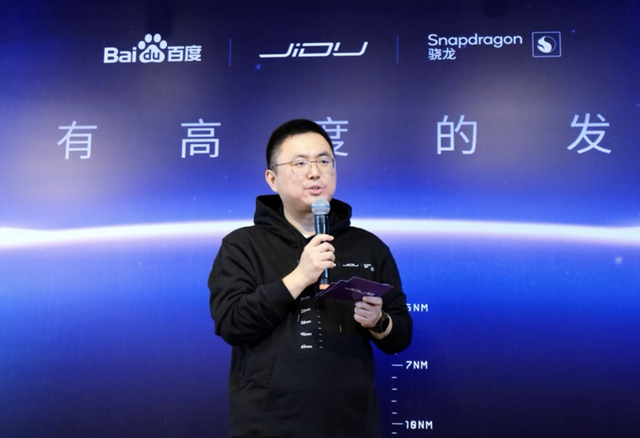
Currently, NIO, Li Auto, Xiaopeng, and Xiaomi Auto have achieved economies of scale, with BYD emerging as the industry leader. It's time to end this disorderly competition, with integration and acquisition being the best outcomes for those lacking competitiveness.
Previously, BYD Chairman Wang Chuanfu predicted that the new energy vehicle industry's window period would last only three to five years, with the market soon transitioning from a blue ocean to a red ocean. Wang Chuanfu's prediction is now coming true.
Judging by the industry's trajectory, only a few players will survive this automaking game. Companies that fail to recognize this and actively integrate now may face an even more challenging future. Those eliminated deserve no sympathy, including today's Jiyue Auto.
From pig farming to new energy and photovoltaics, should we reflect on whether blind cross-industry moves are truly worthwhile in cyclical industries? Aren't the examples of Evergrande and Baoneng painful enough?
The automaking dream should awaken.
Jiyue's collapse is not the last.
It's unclear when automaking and the integration of intelligent driving became the direction for major companies. Under this trend, many large firms began researching automaking or intelligent driving.
In 2010, Baidu laid the groundwork for AI and three years later focused on intelligent driving. In the automotive industry, Baidu was an early adopter.
To gain a foothold in the new energy vehicle industry, Baidu employed multiple strategies.
According to data, in 2017, Baidu invested in NIO and subsequently invested in Weima Auto three times, becoming its largest external shareholder. To further support Weima Auto, the two parties jointly established the 'Weima & Apollo Intelligent Automobile Joint Technology R&D Center.'
For added security, Baidu ultimately decided to enter the field itself.
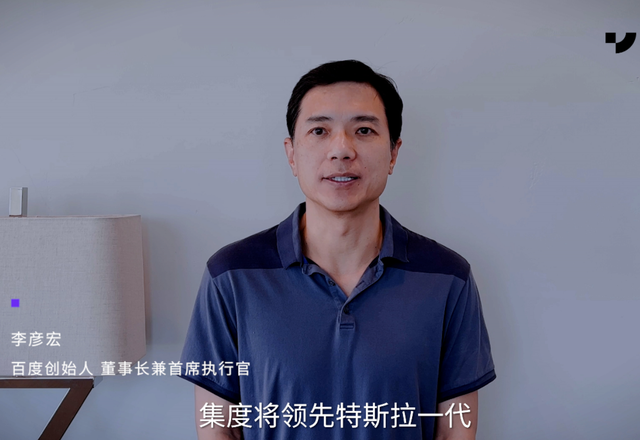
In January 2021, Baidu announced the official establishment of an intelligent automobile company, entering the automotive industry as a vehicle manufacturer. Geely Automobile became a strategic partner of the new company, named Jidu Auto.
In March 2021, Jidu Auto was established with Baidu holding a 55% stake and Geely holding a 45% stake. Notably, this structure didn't last long. In June 2022, Jidu Auto underwent a corporate change, with Geely's associated company withdrawing and Baidu's associated company increasing its shareholding to 100%. In December of the same year, Jidu Auto underwent another corporate change, with its name being changed to Shanghai Miyue Automobile Co., Ltd.
On August 9, 2023, Hangzhou Jiyue Automobile Technology Co., Ltd. was established with Geely's associated company holding a 65% stake and Baidu's associated company holding a 35% stake. The brand name was changed to Jiyue. The repeated corporate changes and equity adjustments demonstrate Baidu's struggles in this automaking game.
On the afternoon of December 10, news spread within Jiyue that the company's shareholders would no longer invest, and Jiyue would cease vehicle manufacturing operations that week. Previously, Jiyue's production department had already initiated layoffs.
On December 11, Jiyue CEO Xia Yiping communicated with all employees via video conference, candidly stating that the company was facing difficulties and needed immediate adjustments, entering the 2.0 stage of entrepreneurship. The management team would go all in to overcome the challenges with all employees. That evening, multiple departments of Jiyue announced their immediate disbandment, such as the delivery department, and some domestic stores temporarily closed upon hearing the news.
On December 12, Jiyue's operational difficulties and employees 'working at their own expense' sparked heated discussions. In the morning of the 12th, according to media reports, Jiyue CEO Xia Yiping was surrounded by many employees at the company's headquarters, and internal employees live-streamed the situation online.
As a result, Jiyue's farce was exposed to the public eye.
To resolve this farce swiftly, Jiyue's shareholders, Baidu and Geely, were not spared. On the afternoon of December 13, Baidu and Geely jointly issued a statement: "As shareholders, Baidu and Geely express deep concern for employees, users, and partners. With a highly responsible attitude, we actively assist Jidu's management in properly handling related matters:
1. Immediately address employee social security contributions and aftercare for departing employees.
2. Maintain normal use, after-sales service, and maintenance of user vehicles.
3. Promote the reasonable and legal resolution of other matters.
Media reports indicate that Baidu and Geely completed the transfer process on the evening of the 12th to pay Jiyue employees' November social security contributions. At this point, this farce has temporarily come to an end.
From the above issues, it's evident that while it's relatively easy for large companies to diversify into new industries, due to the asset-heavy nature of some industries, it's not a game for the fearless or where substantial capital guarantees success. Entrepreneurship is a game of timing, location, and people, and respecting the rules is essential to reaching the finish line.
For Baidu, Jiyue Auto's farce isn't necessarily a bad thing. It clearly signals that the automaking game has entered a white-hot stage. Rather than wading through this murky water, Baidu would be better served focusing on AI and its core business, especially as advertising pressure continues to mount—a problem Baidu cannot ignore. Therefore, Li Yanhong must recognize that this automaking dream should now awaken!



